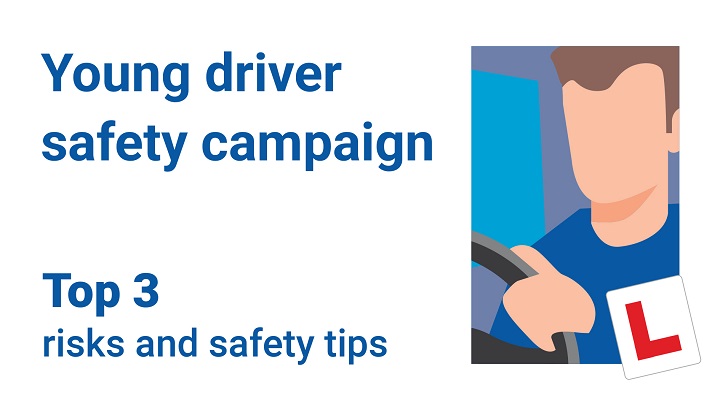
Devon and Somerset Fire and Rescue Service, in partnership with National Fire Chiefs Council (NFCC), has launched a campaign to highlight the three risks young drivers face on the road.
Launched to coincide with the ongoing young driver awareness fortnight (22 September – 5 October), the service’s ‘Top 3’ campaign highlights the leading causes of fatal crashes among 17-24-year-olds: passing driving tests with limited experience, driving late at night, and distractions from peers.
The campaign encourages young drivers – and the people who support them – to discuss these risks together and take practical steps to help reduce them.
Road traffic injuries are a leading cause of death for children and young people worldwide. In Great Britain, young drivers are over-represented in serious and fatal collisions. In 2022, 19% of all car driver fatalities were aged 17-24, and 24% of all fatalities from collisions involving a car driver involved at least one young driver.
Devon and Somerset Fire and Rescue Service attends around 850 collisions a year in its regions. The Service’s Road Safety Team explains that small changes in driving habits can significantly reduce the likelihood of serious incidents.
Annabelle Priest, road safety lead at Devon and Somerset Fire and Rescue Service, said: “Many collisions involving young drivers are preventable.
“The Top 3 campaign is designed to make people aware of the risks and encourage safer driving decisions – whether that’s planning journeys in advance, avoiding late-night driving, or managing potential distractions from passengers.”
The campaign recommends measures such as taking at least six months to learn to drive and allowing time to gain experience in different seasons and weather conditions. It also recommends avoiding driving between 11pm and 6am – when people are naturally more tired and hazards are obscured by darkness.
“Learning to drive over a longer period helps new drivers experience a wider range of situations before their test. Driving skills can be picked up quickly, but the judgement to use them well takes time,” Annabelle added.
The service is also supporting calls for a post-test protection scheme in England, Scotland, and Wales. This would promote varied driving practice before the test and temporarily restrict high-risk situations for new drivers, such as driving at night or carrying several passengers of a similar age.
Dan Quin, road safety and road rescue lead at NFCC, and chief fire officer for Surrey Fire and Rescue Service, said: “Too many young lives are lost on our roads each year, and we know that inexperience, late-night driving, and the presence of similar age passengers are the biggest risks for new drivers. The ‘Top 3’ campaign gives families and young people clear, practical steps they can take to help stay safe.
“NFCC continues to call on Government to consult on post-test protection licensing, which would provide young drivers with the chance to gain experience more gradually while reducing exposure to the riskiest situations. Until then, campaigns like this are vital to raising awareness and saving lives.”
Other suggested approaches to reducing the three risks include creating a family agreement for the first 3-6 months after passing a driving test, which would limit new drivers to one peer-age passenger, and call for parents or caregivers to offer lifts to groups of friends.
Comment on this story